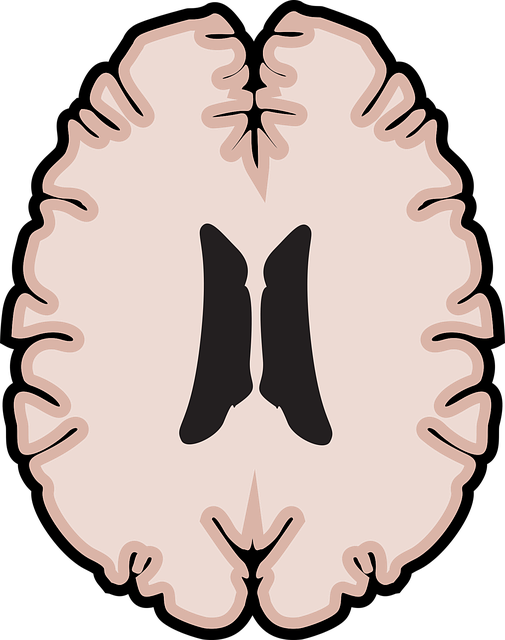In Boulder, Colorado, mental health professionals face unique challenges during major life transitions, requiring adaptability and resilience. Effective risk management is key to creating a safe space in therapy, involving proactive identification and mitigation of risks. Self-care practices and cultural competency training are essential strategies for therapists' well-being and ensuring authentic support for clients navigating life changes. Public awareness campaigns also play a role by educating the community about mental wellness, enabling early recognition of distress and fostering a supportive environment. Boulder Major Life Transitions Therapy integrates these approaches to create transformative, risk-mitigated sessions.
In the dynamic field of mental health, risk management planning is paramount for professionals navigating complex client needs. This article guides therapists through essential strategies, beginning with understanding the core principles of risk management in mental health practice. We explore how Boulder Major Life Transitions, such as major life changes and personal crises, significantly impact client risks. By developing a robust risk assessment framework and implementing effective mitigation techniques, professionals can enhance client safety and foster healthier outcomes in therapy.
- Understanding Risk Management in Mental Health Practice
- Navigating Boulder Major Life Transitions and Their Impact
- Developing a Comprehensive Risk Assessment Framework
- Strategies for Mitigating Risks and Enhancing Client Safety
Understanding Risk Management in Mental Health Practice

In the realm of mental health practice, understanding risk management is paramount to fostering a safe and supportive environment for clients navigating Boulder Major Life Transitions Therapy. Risk Management Planning for Mental Health Professionals involves proactively identifying, assessing, and mitigating potential risks that may arise during therapy sessions. By implementing comprehensive strategies, professionals can ensure the well-being of both clients and themselves while delivering effective care.
Mental Wellness Journaling Exercise Guidance plays a pivotal role in this process, enabling individuals to reflect on their emotions, thoughts, and behaviors. Through structured journaling practices, clients can develop self-awareness, gain insights into their mental health patterns, and identify potential triggers or concerns. Simultaneously, Public Awareness Campaigns Development can educate the broader community about the importance of mental wellness, fostering a supportive ecosystem that reduces stigma and encourages proactive risk management for those seeking therapy.
Navigating Boulder Major Life Transitions and Their Impact

Navigating Boulder Major Life Transitions can significantly impact mental health professionals’ practice and well-being. These transitions, often marked by profound changes in personal or professional life, demand adaptability and resilience. Therapy plays a pivotal role in helping professionals process these shifts, fostering emotional intelligence and understanding. By integrating emotional healing processes, therapists can support themselves and their clients in managing the unique challenges that arise during significant life changes.
Self-care practices are essential components of risk management for mental health professionals. Amidst navigating Boulder Major Life Transitions, prioritizing self-care ensures therapists maintain their own emotional balance and prevent burnout. Incorporating strategies that promote well-being allows professionals to provide more authentic and effective therapy, ultimately enhancing the therapeutic experience for both the therapist and their clients.
Developing a Comprehensive Risk Assessment Framework

Developing a comprehensive risk assessment framework is essential for mental health professionals to navigate the complex landscape of client care, especially when addressing Boulder Major Life Transitions Therapy. This involves a systematic approach to identifying potential risks and vulnerabilities among clients, which can significantly impact their therapeutic journey. By integrating self-esteem improvement strategies into risk management planning, therapists can empower individuals to cope with life transitions more effectively.
A robust framework should consider various factors, such as personal history, current circumstances, and environmental influences. For instance, Public Awareness Campaigns Development initiatives focused on Mental Health Awareness can play a pivotal role in recognizing early warning signs of distress. Through continuous evaluation and adaptation, mental health professionals can ensure they are well-equipped to handle diverse client needs, ultimately fostering a safer and more supportive therapeutic environment.
Strategies for Mitigating Risks and Enhancing Client Safety

Mental health professionals play a crucial role in guiding clients through challenging times, including major life transitions. To ensure client safety and mitigate risks effectively, therapists in Boulder, Colorado, can implement strategic practices. One key approach is to incorporate self-care practices into their routine, fostering resilience and preventing burnout. This involves dedicated mental health education programs designed to enhance professional well-being. By prioritizing self-care, therapists can maintain optimal performance, leading to improved client outcomes.
Additionally, healthcare provider cultural competency training is essential. Understanding and appreciating the diverse backgrounds of clients allows professionals to tailor their approaches, fostering a safe and inclusive environment. This cultural awareness contributes to effective risk management by addressing potential barriers and promoting positive therapeutic relationships. Such proactive measures not only enhance client safety but also transform therapy sessions into supportive, life-changing experiences.
Mental health professionals play a crucial role in helping clients navigate life’s challenges, including Boulder Major Life Transitions. Effective risk management planning is essential to ensure both client safety and the resilience of practitioners. By integrating comprehensive risk assessments, strategic mitigation techniques, and enhanced safety protocols, therapists can provide robust support while minimizing potential risks. This holistic approach, informed by an understanding of Boulder Major Life Transitions Therapy, empowers professionals to create a secure and supportive environment, ultimately fostering positive outcomes for clients facing life’s complexities.














